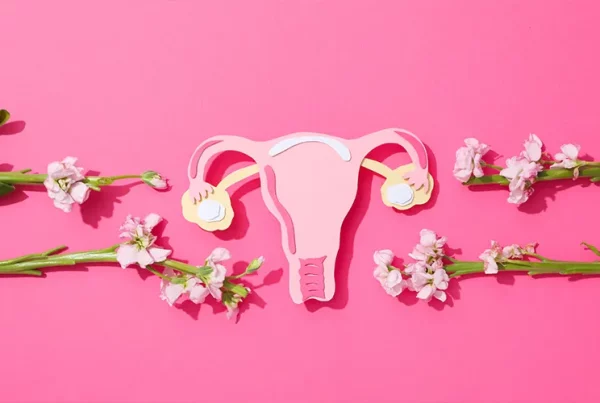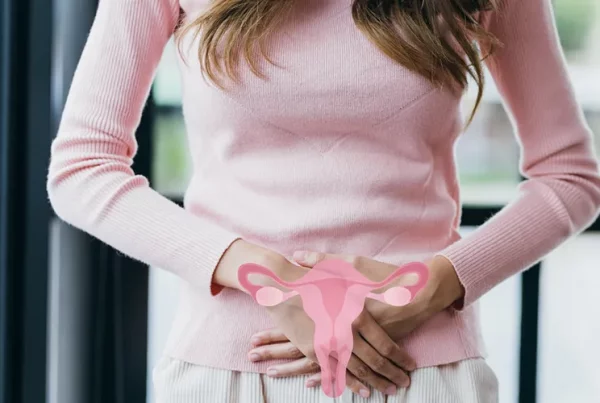The Internet has a wealth of information available for almost any topic, including fertility. However this also means there is a ton of information to sift through. Couples who are struggling to conceive might be easily misled by some of the false information available. Hence, we feel it is important for couples to be equipped with the right knowledge as they embark on their journey to start a family.
In this article, our IVF doctor debunks top 10 most common fertility myths you may have heard or read about.
Myth 1: Getting pregnant is easy!
What Our IVF Doctor Says:
The chances of getting pregnant each month for healthy couples who are below 35 years old is only about 20%. First, the lady needs to ovulate, and then her uterine lining has to be ready for an embryo.
Secondly, the sperm from the man needs to make it through various “barriers” to reach the egg and successfully fertilise the egg. There is no guarantee the egg will always be fertilised or if the fertilised egg will be implanted into the endometrium (uterine lining). Hence for a successful pregnancy to happen, the timing and the conditions need to be optimal.
Suppose you and your spouse are 35 years old or younger but have been trying to conceive for over a year without any success. In that case, our IVF doctor advises you to seek an expert’s opinion to check if there are any underlying fertility issues.
If you and your spouse are older than 35, then you can try for pregnancy for about six months before seeking a specialist’s opinion if you have not conceived yet.
Myth 2: Infertility is always a ladies’ problem.
What Our IVF Doctor Says:
When it comes to infertility, roughly 30% of the issues may come from the man, 30% may be attributed to the woman, 30% may lie with both parties while the remaining 10% is typically the result of unknown causes.
It is quite common for me to see ladies who come for consultations without their partners as they think their struggles with pregnancy are due to underlying issues with them and not their husbands. However, I always advise couples to come for the initial consultation together to avoid unnecessary delays in diagnosis and for everyone to have a clearer picture of the situation.
Myth 3: IVF is the best fertility treatment option out there.
What Our IVF Doctor Says:
There are various options to treat infertility and the most suitable option differs for each couple. Your doctor will advise you on which treatment option is the best for you and your spouse based on your unique circumstances following a fertility assessment.
After you go for a fertility assessment to determine why you are not able to conceive, your fertility doctor may recommend the following:
- Timed intercourse with oral medication such as clomiphene or letrozole.
- Intrauterine Insemination (IUI) where healthy sperm is injected into a lady’s uterus. This is a quick procedure with no downtime and ladies can resume regular activities soon after.
Myth 4: Being stressed can cause infertility.
What Our IVF Doctor Says:
We all know that infertility is, unfortunately, a source of stress for many couples but what we do not know for sure is whether stress can cause infertility. While there is a possibility that physical and emotional stress can prevent you from becoming pregnant, it is more likely that the infertility is caused by an underlying medical condition.
Myth 5: I do not need to watch my diet when trying to get pregnant.
What Our IVF Doctor Says:
There have been many studies showing overweight ladies tend to be more successful in becoming pregnant simply by losing a little bit of weight. Besides, if a woman is overweight, these are some of the health risks she and her baby may face:
- Gestational diabetes
- Heart disease
- Risk of miscarriage
Myth 6: Placing your laptop on your thighs and using it for a prolonged period can impact fertility.
What Our IVF Doctor Says:

For ladies, the chances of your eggs being affected are unlikely as they are well protected in your ovaries, with the added protection of your pelvis around your uterus, fallopian tubes and ovaries. Hence, the quality of your eggs is unlikely to be affected.
As for men, you are constantly producing new sperm so there is no real cause for concern either! While in theory, long term exposure to heat can impair the production of sperm, there are no scientific studies that prove this.
Myth 7: I can wait until I’m 40 or even 45 as it’s common to be able to have kids after age 45 like celebrities, e.g. Janet Jackson.
What Our IVF Doctor Says:
By the time a lady turns 35, her chances of a successful pregnancy fall rapidly! A key contributor to a successful pregnancy is a lady’s age. Ladies are born with all the eggs they will ever produce so as they get older, both the quality and quantity of the eggs decrease. Therefore, by the time women are in their mid-40s, the chances of becoming pregnant are minuscule.
It is not impossible for ladies who are more than 45 years old to have children but it will be very challenging as there are not many healthy eggs left. It is not heavily publicised but some celebrities who are parents after turning 45 years old tend to use eggs that come from a much younger egg donor or they use their eggs that have been frozen when they were younger.
Myth 8: Age only affects women’s fertility, not men’s.
What Our IVF Doctor Says:
By the time men turn 40 years old, they will experience a decrease in the volume of the semen they can produce and the motility of the sperm also reduces. Although men can continue to produce new sperm well into their 90s (the oldest dad on record so far is close to 96!), male infertility rates increase with age just like female infertility.
As men get older, they also have a higher risk for some of the following health conditions:
- High blood pressure
- Heart disease
- Diabetes
These conditions not only affect the general health of the man, they can also affect the quality and quantity of semen produced.
Myth 9: Fertility treatment is just way too expensive.
What Our IVF Doctor Says:

The cost of the various treatments often play an important role when couples decide where they seek treatment. Here at Astra Women’s & Fertility Specialists, we offer comprehensive financial counselling to every couple. If you are eligible, you can also use your Medisave for some of the assisted conception procedures.
Myth 10: Every fertility doctor is pretty much the same.
What Our IVF Doctor Says:
Each fertility doctor is quite different and has their own unique style. For couples who are considering fertility treatment, it is paramount to do some research first. Here are some factors you should consider before deciding which doctor you want to consult:
- The Doctor
The doctor’s experience and expertise are important considerations as their consultation styles may vary. Some doctors have a more traditional approach and do not consider the couple’s input. - Approach to Care
At Astra, we believe in a more consultative approach and equip you with the knowledge and recommendations to empower you to make your own informed choice on what kind of fertility treatment you and your spouse would like to undergo. - Treatment Style
Our IVF doctors also strongly believes in personalising treatments for each couple. Not all places do this as some tend to opt for treatment options that are status quo without personalisation. - Convenience
This should be on the top of your checklist. While you are undergoing treatment, you will need to come in for regular check-ups to monitor how you are doing. If you have to travel a long distance each time, it might only add to your stress levels.
We hope this article has shed some light on common fertility myths and encourages couples to seek help sooner than later.
If you have been trying to conceive for 6 months to a year and still have had no success, see our fertility experts for a fertility assessment.




